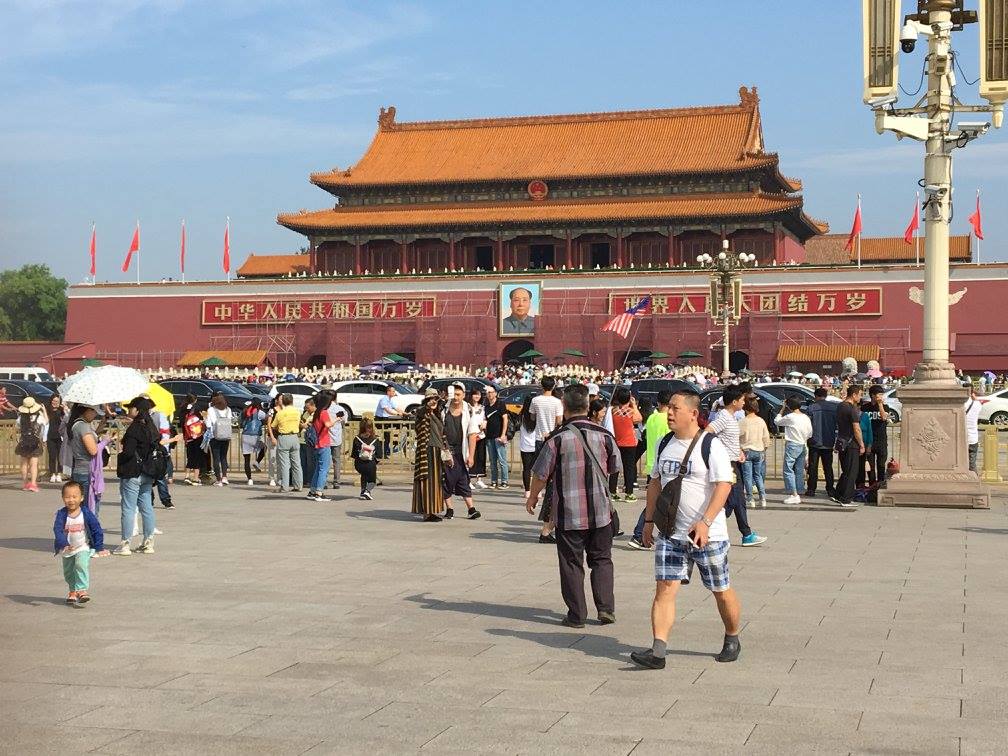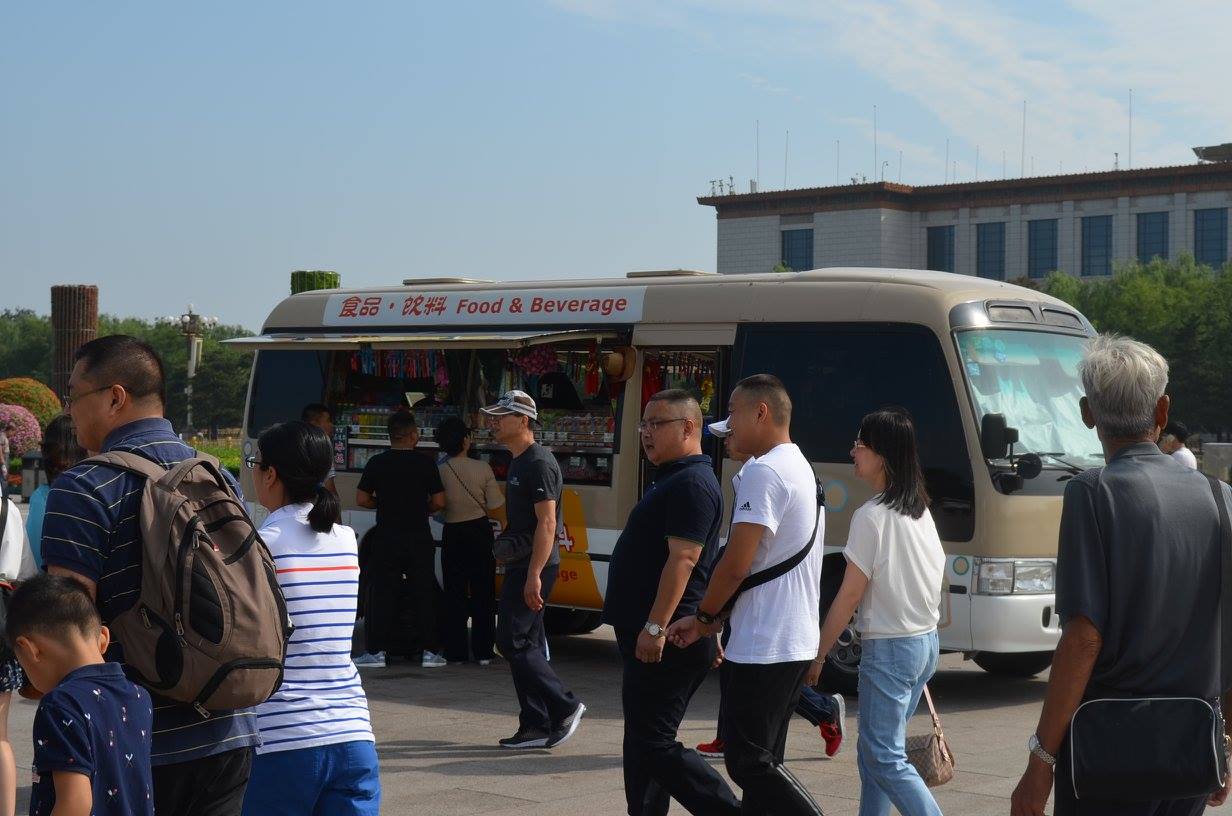
Tiananmen Square
Bumper to bumper traffic. Horns blasting all around. The slow crawl of the left turn lane. Out the window, one young man shuffles along with Bluetooth headphones, bopping his head to the beat and playing air drums with tattooed arms. Next to him, an older man in a suit quickens his pace to pass; obviously, he has important places to go and not enough time to get there. He’s moving twice as fast as our minivan. In his haste, he fails to yield at a crosswalk. A woman in short shorts riding a bike swerves around him, cursing.
If this sounds like New York City to you, I agree. But it’s not. It’s China, and more specifically, middle class Beijing.
I am embarrassed and humbled to admit I knew virtually nothing about modern day China going into this trip. To me, China was a huge question mark on a map, apart from a mishmash of facts about dynasties and the Silk Road leftover in my brain from college history. Oh, and I could regurgitate American political frustrations with China not playing American ball. But other than that, nada.
I walked into Tiananmen Square my first morning in Beijing expecting to feel the oppression of communism. I thought I would hear in my heart the not-so-distant cries of students opposing post-Mao China and their seemingly unanswered demands to be a free, democratic nation. I thought the huge portrait of the Chairman would, for lack of better description, creep me out.
Instead, I saw two food trucks with impressive lines for 9am and a handful of independent vendors trying to make a Yuan selling miniature Chinese flags. The Chairman’s portrait was hanging there, neither ignored nor revered, until the clock struck the top of the hour and a fifty-meter long fountain sprayed blasts of water synchronized to some nondescript patriotic-ish music. This was Mao’s China in 2017. This was not what I expected.

Tiananmen Square Food Truck
I spent my time in China talking to anyone who would talk to me, about anything they wanted to talk about. I asked some questions but mostly let them lead the conversation. I wanted to know what they were thinking. What made the new Chinese middle class tick?
The answer is, for the most part, the same thing that makes the American middle class tick.
“My friend sent her daughter to four weeks of expensive summer camp. I just couldn’t justify spending the money. How many extracurricular activities does a kid need? I hope she won’t be behind when school starts.”
~ A thirty-something woman
“I want to go back to work but I’ve been out of the workplace for three years raising a kid. I am so behind in my field. Maybe I should have gone back right away like my friend did.”
~ A thirty-something woman
“I don’t know why people post pictures of their food online. Why do I care what you had for dinner?”
~ A man checking in on WeChat, the Chinese version of Facebook
“Some people drive Buicks and Cadillacs they can’t really afford because it makes them feel good, like they’re important. I drive a Chevrolet. I bought it because the logo reminded me of Jesus Christ and I’m a Christian.”
~ A man who drives for a living
This last one cracks me up, not because of the reason he bought his car but because of what he said next. I told him people in the United States do that, too, and I tried to explain about leasing a car to afford a more expensive one or taking out an 72-month loan. He was totally blown away. He really thought all Americans drove Buicks and Cadillacs like they do in the movies. I told him we had a Ford. He said, “Huh,” and then, “I like Chevy better because of the cross.”
I learned that quality childcare is scarce and expensive and their equivalent baby boomer generation doesn’t want to raise their kids any more than mine does. I learned that people are over-mortgaged and under-vacationed. I learned that the Chinese middle class is fiercely individualistic, kind of pushy, and moderately political. They are also reliant on government when it’s convenient and quick to point out a government crook when it’s convenient.
Basically, I learned that they’re more like us than they are different from us. This shouldn’t surprise me, I suppose. It’s the same thing I’ve learned everywhere I’ve traveled. But really, on a next level level, the Chinese middle class is truly very similar to America’s middle class. In some ways, China felt more familiar than Japan ever will. [Except for public restrooms. Chinese toilets make the worst public toilet in Mississippi look lickable.]
In the next few posts I’m going to relay some crazy stories and focus on quirky things I experienced. But before I wrote about the differences, I thought it prudent to write about the “sames.” In the long run, for our world civilization to function, and for us to not blow each other to smithereens, we would be so much smarter to embrace the sameness of us all. Maybe if Americans knew how similar we are to the exploding middle class in China, we wouldn’t be nearly as afraid of them.

Recent Comments